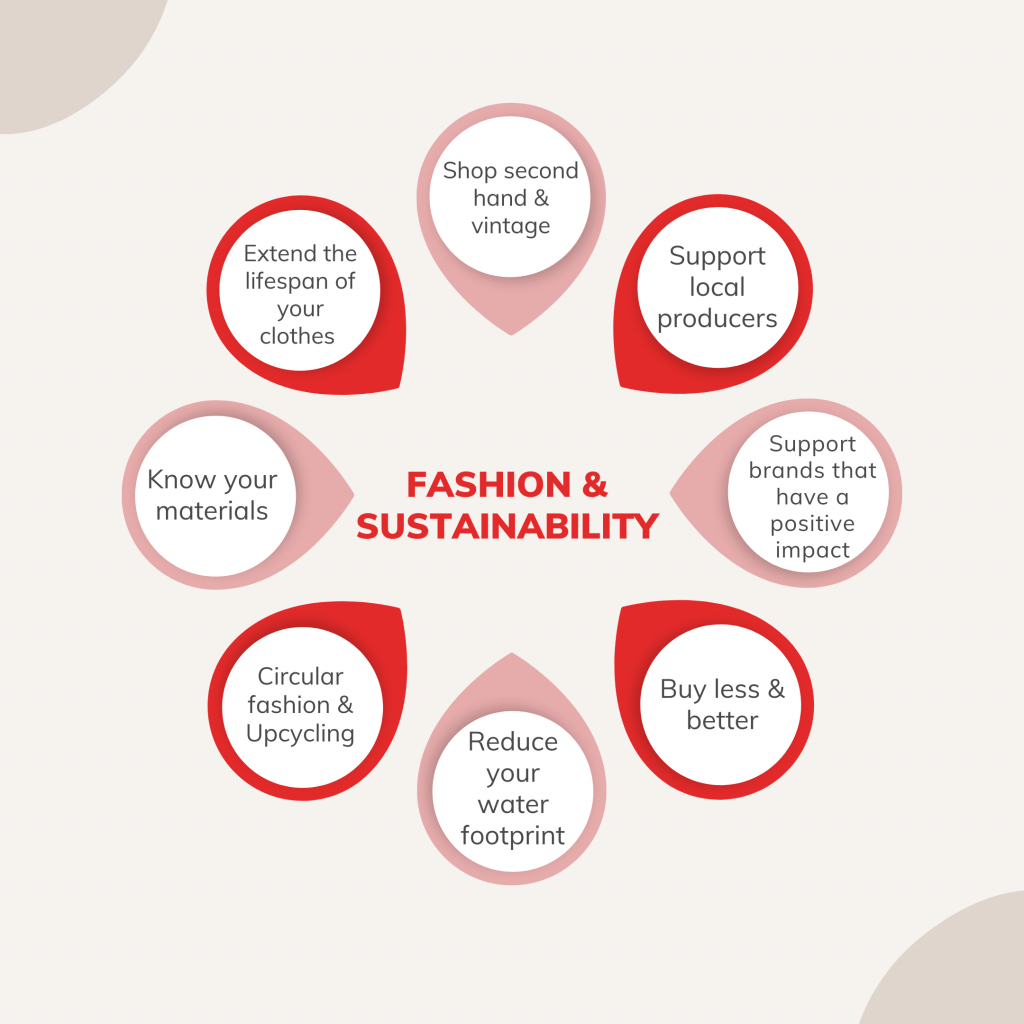Shopping Bag
0 item
- No products in the cart.
Fashion is in our lives more than we can imagine and, sometimes, we are afraid to admit it. But that is still a fact. It is an important way that human beings express themselves. It’s everywhere! School, religions, workplace, or even to go to the supermarket, for example. (At least I’ve never seen someone shopping naked!)
Sustainable fashion though is a term that has been used for a while now, but it has grown in the market substantially. But it is frequently misused and poorly known.
Sustainability goes way beyond buying recycled cotton or clothes made of recyclable plastic.
The fashion industry is responsible for 4 to 10% of greenhouse-gas emissions every year and it’s also known for its poor act of enslaving people throughout its supply chains, as well as polluting and damaging the environment.
So, what sustainable fashion really is? What does it mean?
According to an article published on VOGUE by Emily Chan, “it’s an umbrella term for clothes that are created and consumed in a way that can be, quite literally, sustained, while protecting both the environment and those producing garments. That’s why cutting CO2 emissions, addressing overproduction, reducing pollution and waste, supporting biodiversity, and ensuring that garment workers are paid a fair wage and have safe working conditions, are all crucial to the sustainability matrix.”
Those are several factors that need to be thought about before buying new clothes, and Cloupas is here to help, giving you not only the information but also the platform where you can act and be part of the change!

Shop second hand & vintage
Buying second-hand clothes is a great way to extend the life of the garments. It reduces waste with fabrics ending up in landfills and, reducing the shopping from big fast-fashion brands, it can also impact the reduction of production. Also, you can find one-of-a-kind pieces that can be part of your style.
Reduce your water footprint
Production of textile uses 93bn cubic meters of water annually — the equivalent to 37m Olympic swimming pools. Organic cotton, for example, uses significantly less water than conventional cotton – around 91% less, while the use of low-water dyes also reduces water consumption.
Support local producers
Local producers aren’t large-scale factories and most of the time, depend on the sales of your products to pay the bills and have a living wage, and not to accumulate massive profit. Also, you get great quality artisanal products made consciously.
Know your materials
Know the material that your garment is made from. Polyester, Nylon, and Elastane are synthetic fabrics that can release microplastic into the environment and also takes way longer to decompose, for example.
Support brands that have a positive impact
Eco-minded brands are those that, “consider how fashion can have a positive impact on the environment rather than just reducing its impact. Regenerative agriculture—farming practices such as no-tilling and growing cover crops — is a growing trend within a fashion that aims to restore soil health and biodiversity.” Emily Chan, 2021
Circular Fashion & Upcycling
In a circular fashion industry model, one of the best thing we can do is buy less and reuse more. If everyone bought just one used item instead of new this year, it would have a huge collective and positive impact on the planet.
Upcycling is also another great way to repurpose your garments.
Buy less & better
Reducing consumption may impact directly on reducing waste. Another way to reduce waste is investing in good quality garments that will have a good lifespan on your wardrobe. Choose garments that are timeless and with good fabrics, for example.
Extend the lifespan of your clothes
Last but not least, be careful with your garments. Wash and store them properly and, when you don’t want or need them anymore, donate or sell them at Cloupas! It will extend the life of your garments and create a healthier cycle for the environment.
Cloupas is a platform created to support sustainable fashion empowering small producers and facilitating the second-hand market for clothes. Here you can create your store for free and sell your products safely.
Have not an account yet? Sign up